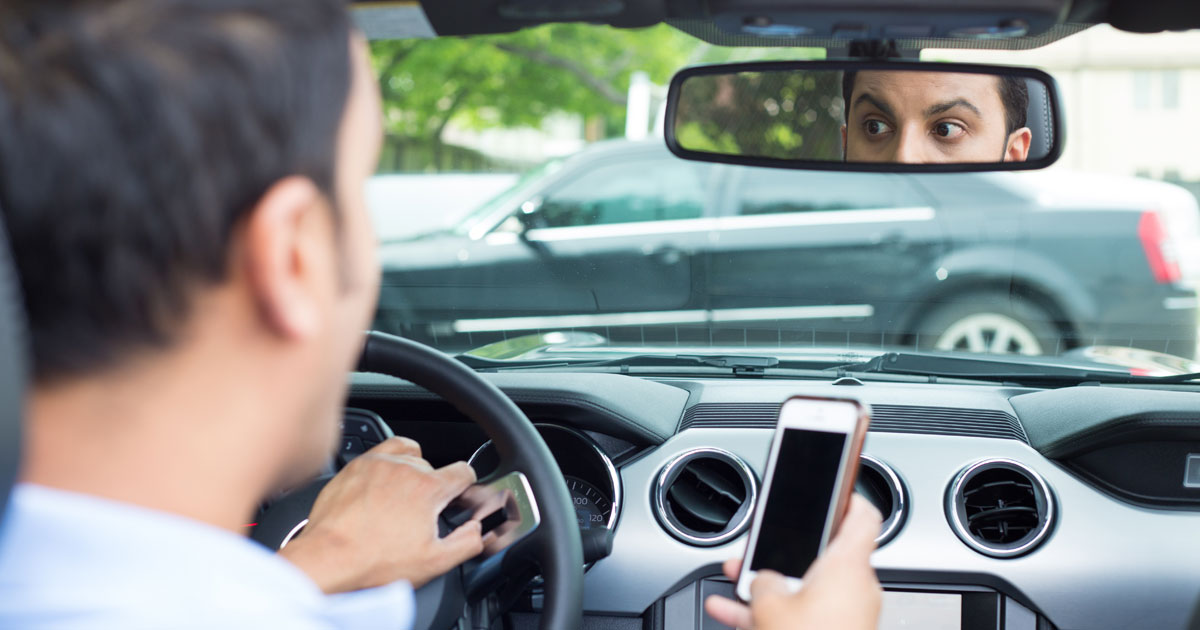What Is a Distraction Hangover?

These days, more distractions are competing for drivers’ attention than ever before. From smartphones buzzing with notifications to billboards vying for attention on the roadside, it is easy to become overwhelmed by the constant bombardment of stimuli.
Distractions can have grave consequences for motor vehicle drivers and occupants. In recent years, the term “distraction hangover” has been used to describe their lingering effects, shedding light on the added dangers they pose to road safety.
A distraction hangover refers to the lingering impairment of cognitive functions and decision-making abilities following exposure to distractions. Similar to how one might experience a hangover after consuming alcohol, individuals can suffer from a “hangover” after being inundated with distractions. This phenomenon can result in decreased reaction times, impaired judgment, and reduced situational awareness.
Distractions while driving can take many forms, such as:
- Texting or talking on a cell phone.
- Adjusting the music playlist.
- Eating or drinking.
- Arguing with passengers.
- Daydreaming or becoming lost in thought.
Each of these distractions diverts attention away from the primary task of driving, increasing the risk of accidents. While some distractions may only take away focus for a few seconds, their effects can linger, contributing to a distraction hangover.
How Can a Distraction Hangover Cause a Car Accident?
The consequences of a distraction hangover can be dire when operating a vehicle. Even after the initial moment has passed, individuals may experience impaired cognitive function, making it challenging to react swiftly to changing road conditions or hazards. This delayed response time increases the likelihood of accidents, as drivers may fail to brake in time or swerve to avoid collisions.
Distractions and their hangovers can also impair judgment, leading drivers to engage in risky behaviors or make poor decisions behind the wheel. For example, an unfocused driver may underestimate the distance between their vehicle and the one in front of them, resulting in a rear-end collision. Similarly, impaired judgment may lead drivers to attempt risky maneuvers, like speeding or weaving through traffic.
How Long Does a Distraction Hangover Last?
A distraction hangover occurs when our brain feels tired after exposure to too many distractions or interruptions. Our brain has a limited capacity for attention, and each distraction taxes its resources. When we’re bombarded with distractions, our brain constantly shifts gears, depleting energy reserves. That can impair cognitive functions like focus and memory.
The length of a distraction hangover depends on the nature of the distraction. A roadside billboard might only create a distraction hangover of a few seconds, but an intense argument with an occupant in your car could make it challenging to focus for the entire ride.
How Can Drivers Minimize the Risk of Distraction Hangovers?
The idea of eliminating distraction hangovers is unrealistic, but there are steps drivers can take to lower the risks:
- Stay focused on driving and avoid allowing external stimuli like cell phones and hot coffee to distract you from the road.
- If using GPS or hands-free devices, program them before leaving your journey.
- Extended periods of uninterrupted driving can tire you and increase your susceptibility to distraction hangovers. Take regular breaks to rest and refresh your mind.
- Adopting these strategies can reduce the likelihood of experiencing distraction hangovers and help create safer roadways for everyone.
Our Washington, D.C. Car Accident Lawyers at the Law Offices of Duane O. King Advocate for Distraction-Free Driving
Distraction hangovers pose a significant threat to road safety, impairing cognitive function and decision-making abilities long after the initial distraction has passed. If you or a loved one has been injured in a car accident caused by distracted driving, seek legal guidance from our experienced Washington, D.C. car accident lawyers at the Law Offices of Duane O. King. Complete our online form or call 202-331-1963 to schedule a free consultation. Located in Washington, D.C., National Harbor, MD, and Falls Church, Virginia, we serve clients in Prince George’s County, including Laurel, Beltsville, Adelphi, College Park, Greenbelt, Mitchellville, Woodmore, Greater Upper Marlboro, Springdale, Largo, Bowie, Capitol Heights, District Heights, Forestville, Suitland, Seat Pleasant, Clinton, Oxon Hill, Temple Hills, and Fort Washington.
